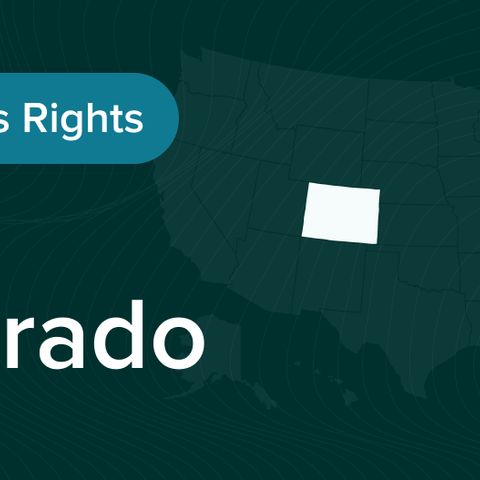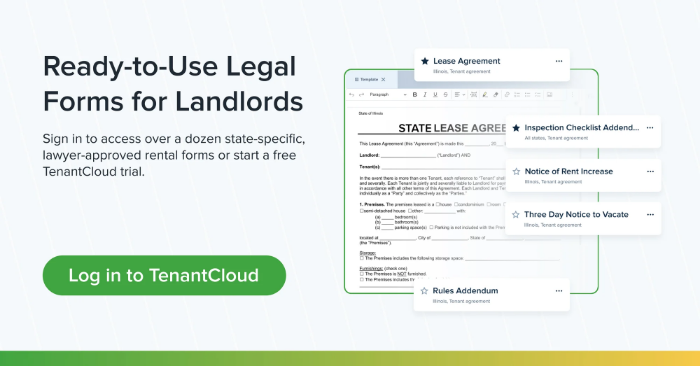Navigating property ownership can be challenging, particularly when dealing with unexpected situations like squatters. Understanding Colorado squatter's rights law is essential for property owners to protect their investments and handle such occurrences effectively. This legal framework outlines the conditions under which squatters may claim adverse possession of a property and the steps owners must take to reclaim their rights.

By being informed about the intricacies of the law, property owners can address disputes, prevent long-term legal issues, and maintain control over their assets. In this article, we'll simplify Colorado squatter's rights law, providing property owners with the tools to safeguard their ownership.
What Are The Rights Of Property Owners Against Squatters In Colorado?
Property owners in Colorado hold specific rights designed to protect their property from unauthorized occupation. However, squatting laws, including the concept of adverse possession, can make managing such situations complex.
- Adverse possession, often referred to as "squatters rights," allows unauthorized occupants (squatters) to claim legal ownership of a property under certain circumstances.
- While this may sound alarming for property owners, adverse possession in Colorado comes with strict legal requirements. A squatter must prove continuous, open, exclusive, and hostile possession of the property for 18 years (or 7 years under certain conditions), among other criteria.
- This is not a process that happens overnight but rather involves years of consistent and documented occupation.
Property owners have the right to take proactive measures to prevent adverse possession claims. These include regularly inspecting their properties, addressing any signs of unauthorized occupants, and enforcing trespassing laws with help from local law enforcement.
For instance, Colorado law allows property owners to pursue legal eviction or trespassing complaints if they find squatters on their property. Regular property inspections are critically important, especially for vacant properties or rental homes between leases.
If you own a rental property, diligent property management practices can protect it. For tips on maintaining your rental, see how to manage a rental property.
Related: Colorado Evictions | Laws and Protections
What Are The Legal Challenges Of Enforcing Squatters' Rights in Colorado?
Squatter's rights, or adverse possession claims, can create significant legal hurdles for both property owners and squatters. For a squatter to claim adverse possession successfully, they must meet stringent legal benchmarks outlined under Colorado law. However, these claims can tie up properties in lengthy legal battles.
The legal framework for squatters' rights under Colorado law involves a process that safeguards both the property owner's rights and the due process for occupants claiming adverse possession. While this sounds balanced, it often leads to contentious disputes and financial burdens for property owners. For example, squatters who openly occupy a property may appeal to local law enforcement and courts to protect their possession if they believe they meet adverse possession criteria.
One legal complication stems from distinguishing trespassing from squatting. A trespasser is someone who unlawfully enters and occupies property without any claim to legal rights, and is often removed quickly by law enforcement. On the other hand, a squatter can make a claim under adverse possession law if specific conditions are met, such as "notorious possession," which means the squatter makes no attempt to hide their occupation.
Additionally, enforcing squatter eviction requires navigating state-specific eviction laws. Colorado's timeline for legally removing a squatter might take weeks or months, depending on the circumstances, complicating matters further for property owners. When dealing with holdover tenants (former tenants who refuse to vacate), the situation can become even murkier, requiring legal consultation and clear documentation.
Proactively securing your property to deter squatting is essential. Consider using our guide to understanding property management fees by reading about property management fees.
What Are The Steps To Evict Squatters in Colorado?
Evicting squatters in Colorado involves a structured legal process. Jumping straight to the physical removal of squatters could lead to legal penalties for property owners. Thankfully, understanding the legal process helps ensure compliance with Colorado law.
Here are the steps property owners can take to handle a squatter situation effectively:
1. Verify Squatter Status
The first step is determining whether the unauthorized occupants are trespassers or potential squatters. If the individual is trespassing, property owners can contact law enforcement immediately. However, if the occupant meets any adverse possession criteria, this becomes a more complex legal matter requiring a formal eviction process.
Keep in mind that unauthorized tenants or holdover tenants might also complicate classifications, demanding a thorough review of lease agreements and the unauthorized occupant's history with the property.
2. Contact Local Law Enforcement
While property owners are not legally allowed to remove squatters on their own, the first and most crucial step is to notify local law enforcement authorities. Law enforcement officials play a key role in addressing the situation by assessing whether the individuals occupying the property are trespassers or are attempting to claim squatters' rights under Colorado law. This distinction is important, as squatters may try to assert certain legal protections, depending on the circumstances.
If the occupants are determined to be trespassers, law enforcement officers can take action to remove them promptly, provided they have verified the property owner's documentation proving ownership and confirmed any violations of occupancy laws. This process ensures that the removal is conducted lawfully and in accordance with the legal framework, minimizing potential disputes or complications for the property owner.
3. Serve an Eviction Notice
If a squatter claims adverse possession, you'll need to serve them with an eviction notice. For this, you'll need legal advice to ensure the notice complies with Colorado law. Generally, squatters must be given a specific amount of time to vacate the premises. Failure to comply allows property owners to initiate legal proceedings.
4. File an Eviction Lawsuit
Should the squatter refuse to leave, property owners must file a formal eviction lawsuit, known as an unlawful detainer action, in the local court system. The property owner must present a strong case, demonstrating legal ownership of the property and evidence that the squatter has no valid claim under the adverse possession law.
5. Obtain a Writ of Restitution
Once the court rules in favor of the property owner in a legal dispute involving a squatter, the judge will issue a formal court order known as a writ of restitution. This document serves as an official directive that grants law enforcement the authority to step in and take action. Specifically, it allows law enforcement officers to physically remove the squatter from the property, ensuring that the rightful owner can regain possession of their land or home. This process is designed to provide legal and enforceable support to property owners who have been unable to resolve the situation through other means.
6. Reclaim and Secure the Property
After the eviction process is complete, property owners should immediately secure the property. This includes repairing damage, changing locks, and increasing monitoring efforts to prevent further incidents. For comprehensive management solutions, explore this property management checklist.
Related: Overview of Colorado Landlord-Tenant Law | Know Your Rights
How Can Property Owners Protect Their Assets?
Preventative measures are key when it comes to protecting property from squatters. Start by performing regular inspections, especially if you own a vacant property. Removing signs of neglect, such as overgrown landscaping or deteriorating structures, discourages squatters. Strong relationships with neighbors can also provide an extra set of eyes to report suspicious activity.
Consider consulting legal experts who specialize in property law to address potential squatter risks. Seeking legal advice early can prevent adverse possession claims from escalating into full-scale disputes. Be proactive in documenting all interactions with unauthorized persons and protecting your legal title.
Finally, investing in professional property management can further safeguard against adverse possession issues. Skilled property managers oversee routine maintenance, tenant vetting, and lease enforcement, ensuring rental properties operate smoothly. Read more about the benefits of professional services in hiring a property manager.
TenantCloud's Hybrid Approach To Property Management
TenantCloud's hybrid approach to property management offers a flexible solution for landlords by combining automation tools with an intuitive platform. This system streamlines routine tasks like rent collection, tenant screening, and maintenance management while still allowing landlords to maintain control over critical decisions.
Key features include automated rent collection with payment tracking, tenant screening with background checks and e-signable leases, maintenance request tracking, and simple accounting tools integrated with QuickBooks. It's designed to make property management efficient and hassle-free.
Related: New Mexico Evictions | Laws and Protections
Final Thoughts
The Colorado squatter's rights law presents unique challenges and opportunities for both property owners and unauthorized occupants. While the adverse possession doctrine offers defined legal pathways, enforcing squatter eviction involves navigating intricate laws and deadlines. Remaining proactive and informed is the single best defense against losing property to unauthorized occupation.
Whether you're dealing with squatters, considering professional property management, or simply refining your rental practices, taking preventive steps like securing insurance and enlisting legal aid can make all the difference. For more resources, check out our blog's helpful guides, such as managing eviction records for your rental properties.
By staying vigilant, understanding Colorado law, and seeking professional help when needed, you can confidently protect your investment and maintain control over your property.






